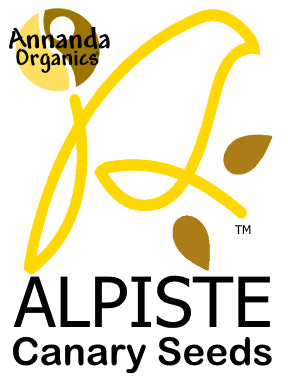Nutrition Profile
Protein 21%
The high protein value at 21% of Alpiste (Canary seed) makes it a unique speciality grain as that value is almost double compared to most other common cereal grains and pseudocereals (such as quinoa, buckwheat and amaranth). Alpiste (Canary seed) has higher contents of the essential amino acids tryptophan, phenylalanine, isoleucine and leucine compared to other common grains.
Fat 6.5%
The predominant fatty acids in Alpiste (Canary seed) are oleic (monounsaturated omega-9 fatty acid) at 30%; linoleic (polyunsaturated omega-6 fatty acid) at 55% and palmitic (saturated fatty acid) at 15%, with about 2% omega-3 fatty acids. Alpiste (Canary seed) has higher fat content compared to wheat, barley and other pseudocereals like buckwheat.

Carbohydrates 60% and Fiber 6.5%
Alpiste (Canary seed) is similar to other grains and pseudocereals in its carbohydrate level. The majority of the fibre in Alpiste (Canary seed) is insoluble.
Antioxidants and Plant Sterols
The major carotenoids in Alpiste (Canary seed) are β-carotene, lutein and zeaxanthin. The high level of β-carotene (5700 µg/kg) distinguishes it from other grains. The phytochemicals tocopherols (forms of Vitamin E) in Alpiste (Canary seed) are comparable to oats at 2.8 mg/100g. Alpiste (Canary seed) contains about 0.47 mg/g of plant sterols with β-sitosterol being the primary sterol comprising about 43% of the total sterols.
Gluten Free
Alpiste (Canary seed) has been tested and proven to be gluten-free (contains no gluten protein) and is therefore safe for individuals with celiac disease. However, during the safety studies on the grain, it was observed that it may contain a protein similar to a wheat allergen protein.
